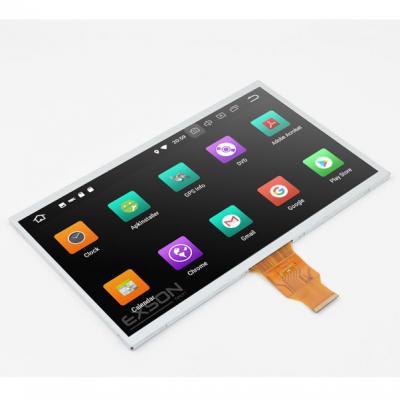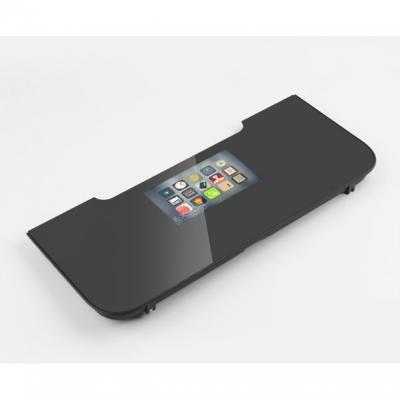In a technologically driven world, touch panel modules have become an integral component across a range of industries. From smartphones and tablets to automotive and industrial applications, these modules have revolutionized the way users interact with electronic devices. This blog explores the latest trends and forecasts shaping the touch panel module market, shedding light on its evolution and future prospects.
The touch panel module market has witnessed significant growth over the years, driven by the rising consumer demand for enhanced user experiences. These modules incorporate touch sensors that detect and interpret user input, allowing for intuitive and interactive interactions. Since their inception, touch panel modules have become smaller, more responsive, and cost-effective, making them increasingly accessible to manufacturers across various industries.
Rapid Technological Advancements: Touch panel modules are undergoing continuous advancements, with technological innovations leading to thinner, lighter, and more flexible designs. Introduction of new materials, multi-touch capabilities, and integration of sensory technologies like haptic feedback contribute to a seamless user experience.
Enhanced Durability and Reliability: With the advent of robust touch panel module technologies, manufacturers are focusing on improving their durability and reliability. Incorporation of shatterproof and scratch-resistant surfaces, along with water and dust resistance, ensures increased product lifespan and reduced maintenance costs.
Expanding Applications: The touch panel module market is witnessing a surge in demand across a diverse range of sectors such as automotive, healthcare, retail, gaming, and aerospace. The integration of touch panels in automobile dashboards, medical devices, kiosks, and wearable technologies are driving market growth.
According to market research reports, the touch panel module market is expected to grow significantly in the coming years. Factors such as the proliferation of smartphones, growing adoption of touch panels in automotive navigation systems, and increasing demand for touch-enabled industrial control interfaces are fueling this growth. The Asia Pacific region is expected to dominate the market, owing to the presence of major touch panel module manufacturers and a rapidly expanding consumer electronics industry.
Furthermore, the adoption of emerging technologies like 5G connectivity, Internet of Things (IoT), and augmented reality (AR) is projected to further boost the demand for touch panel modules. The integration of touch panels with these technologies will open new avenues for innovative user experiences, reinforcing the market's potential for continuous expansion.
The touch panel module market continues to evolve as advancements in technology pave the way for enhanced user experiences. With a range of applications spanning across industries, these modules have become indispensable components of modern electronic devices. The market's future holds immense potential, driven by emerging trends, increasing consumer demand, and ongoing technological advancements. As the touch panel module market continues to expand, it promises to revolutionize the way we interact with technology, creating exciting possibilities for the future.
 Working Principle of Various Wire-Type Resistive Touch ScreensMarch 31, 2023There are generally two types of touch screens: capacitive touch screens and resistive touch screens. Next, we will introduce the working principle of resistive touch screens.Resistive touch screens c...view
Working Principle of Various Wire-Type Resistive Touch ScreensMarch 31, 2023There are generally two types of touch screens: capacitive touch screens and resistive touch screens. Next, we will introduce the working principle of resistive touch screens.Resistive touch screens c...view Characteristics and Advantages of LCD Bar-type LCD ScreensAugust 4, 2023The technology of LCD liquid crystal displays is developing rapidly, and LCD bar-type LCD screens are currently popular new products in the market. So what is a bar-type LCD screen?An LCD bar-type LCD...view
Characteristics and Advantages of LCD Bar-type LCD ScreensAugust 4, 2023The technology of LCD liquid crystal displays is developing rapidly, and LCD bar-type LCD screens are currently popular new products in the market. So what is a bar-type LCD screen?An LCD bar-type LCD...view How Important Are TFT Screens in the Medical IndustryJuly 1, 2024To select the right TFT LCD display for medical applications, engineers and decision-makers need to have a comprehensive understanding of how the specifications of TFT LCD screens affect the final pro...view
How Important Are TFT Screens in the Medical IndustryJuly 1, 2024To select the right TFT LCD display for medical applications, engineers and decision-makers need to have a comprehensive understanding of how the specifications of TFT LCD screens affect the final pro...view How Much Do You Know About Medical LCD Displays?February 8, 2023With the wide application of medical LCD displays in medical instruments and equipment, it is valuable and meaningful for medical equipment engineers to understand and master the common faults and mai...view
How Much Do You Know About Medical LCD Displays?February 8, 2023With the wide application of medical LCD displays in medical instruments and equipment, it is valuable and meaningful for medical equipment engineers to understand and master the common faults and mai...view Difference Between LCD and TFT ScreenOctober 31, 2022LCD refers to a liquid crystal display, and TFT is a type of LCD. The former is dedicated to desktop computers and the latter is dedicated to notebooks. So, what are the differences between lcd and tf...view
Difference Between LCD and TFT ScreenOctober 31, 2022LCD refers to a liquid crystal display, and TFT is a type of LCD. The former is dedicated to desktop computers and the latter is dedicated to notebooks. So, what are the differences between lcd and tf...view How Should the Liquid Crystal Panel Be Maintained Best?September 26, 2022With the popularization of LCD TVs, notebook computers, LCD monitors and other liquid crystal panels, the cleaning of liquid crystal panels has also become the focus of users' attention. Many user...view
How Should the Liquid Crystal Panel Be Maintained Best?September 26, 2022With the popularization of LCD TVs, notebook computers, LCD monitors and other liquid crystal panels, the cleaning of liquid crystal panels has also become the focus of users' attention. Many user...view Call us on:
Call us on:  Email Us:
Email Us:  2F-M1 XiaWei Industrial Park, GuanLan, LongHua District, SZ, China
2F-M1 XiaWei Industrial Park, GuanLan, LongHua District, SZ, China